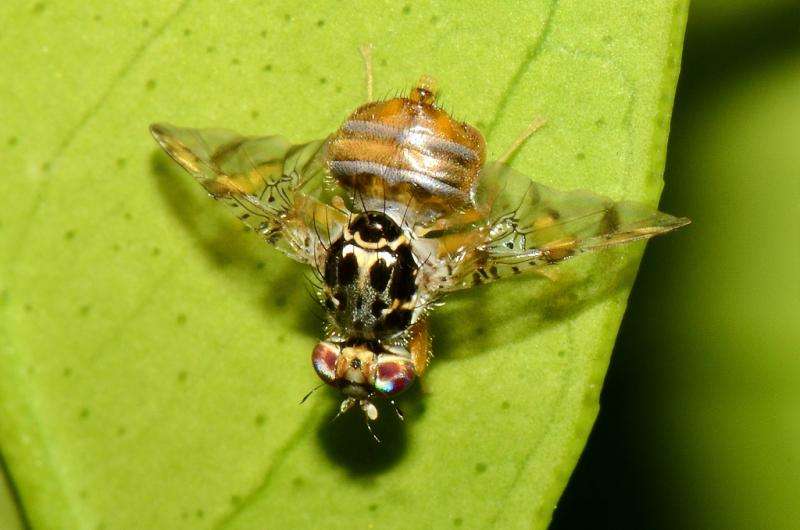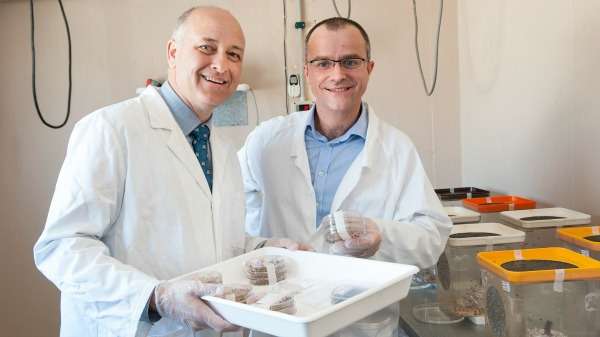Genetically modified fly deployed against fruit pest

WA fruit growers could soon have one more weapon against the state's most serious fruit fly pest, the medfly (Ceratitis capitata).
The WA Department of Agriculture and Food (DAFWA) and Oxford University spin-out company Oxitec are set to trial the effectiveness of a genetically modified medfly.
They hope this new breed can help growers combat a pest which costs between $10-14 million annually to control and spoils up to 15 per cent of fruit crops.
The technique involves researchers inserting two genes into the medfly, a self-limiting gene which prevents female offspring from surviving to reproductive age and a fluorescent track-and-trace marker (DsRed2).
"This is a new approach to the Sterile Insect Technique in which radiation sterilisation of flies is replaced with a genetic method," DAFWA's David Windsor says.
"It's a glimpse into the future of 21st century pest control."
The Sterile Insect Technique (SIT) has been used globally since the 1950s and is considered the most environmentally-friendly form of eradication.
It involves scientists sterilising male medflies through radiation and releasing them in large numbers to compete for mating opportunities.
As females who couple with sterile males have no viable offspring, insect populations decrease.
The new genetic approach works in a similar way but will require fewer insects, making it more cost-effective yet equally environmentally benign.

"Our method only affects the target species, and because it is self-limiting, the genes and insects disappear from the environment once we stop releasing," Oxitec's Dr Neil Morrison says.
"The medflies are non-toxic, non-allergenic and insecticide-free, and our studies have demonstrated that if a predator were to feed on our insects, it's just the same as eating other insects—there are no adverse effects."
The project is one of a number Oxitec has under way, including breeding the mosquito Aedes aegypti, the main vector for dengue fever.
Field trials of A. aegypti saw a reduction in insect populations of 93 per cent in Panama and 96 per cent in the Cayman Islands.
This rate of success is good news for WA growers, who since October can no longer access broad-spectrum organophosphate insecticides such as Fenthion and Dimethoate.
However, a number of challenges need to be met.
"First, we need to work out whether female WA medflies want to mate with Oxitec males," Mr Windsor says.
"The populations have been isolated from one another for a long time and may be slightly genetically different."
Trials will begin in 2016.
Provided by Science Network WA
This article first appeared on ScienceNetwork Western Australia a science news website based at Scitech.




















